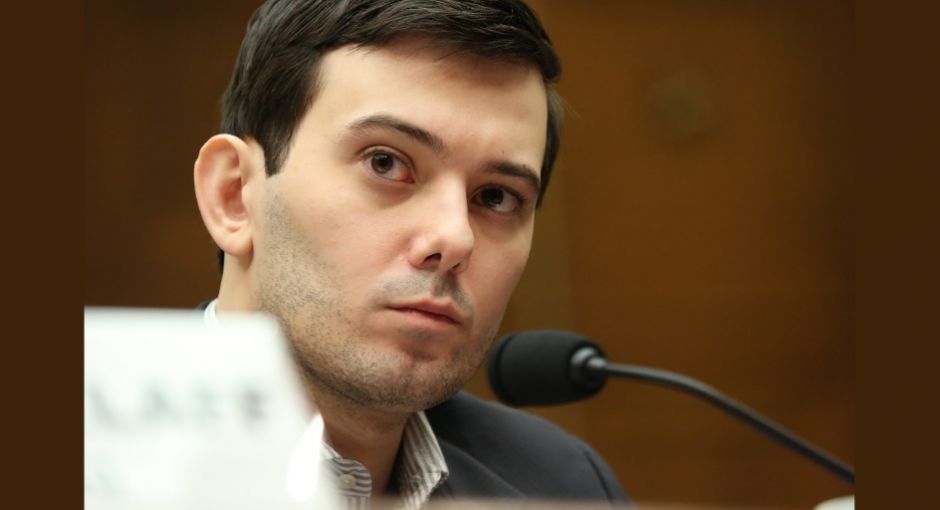“Pharma Bro” Martin Shkreli’s former company and former business partner agreed Tuesday to settle legal claims brought against them by the U.S. and seven state governments arising from the company’s purchase of and 4,000% price increase on the drug Daraprim, which is used to treat toxoplasmosis in patients with HIV.
The U.S. Federal Trade Commission (FTC) and its state co-plaintiffs—New York, California, Illinois, North Carolina, Ohio, Pennsylvania, and Virginia—will get up to $40 million from Vyera (formerly Turing) Pharmaceuticals and its parent company Phoenixus AG. Shkreli’s ex-partner Kevin Mulleady “will generally be banned from working for, consulting for, or controlling a pharmaceutical company for seven years,” according to the FTC.
The outspoken and controversial Shkreli, currently in prison for securities fraud, and Mulleady hiked Daraprim’s price “and then concocted an elaborate web of restrictions to illegally block competitors from producing a cheaper option,” the FTC said. Shkreli is not a party to the settlement. The unfair competition, monopoly, and restraint of trade case against him will go to trial later this month, the FTC said.
After Turing Pharmaceuticals bought Daraprim in August 2015, it raised its price from $13.50 to $750 per tablet. That September, several state AIDS drug assistance programs (ADAPs) reported to the U.S. Health Resources and Services Administration (HRSA) that they were unable to buy Daraprim at the 340B price. Georgia temporarily removed Daraprim from its ADAP formulary due to the spike in price. The 340B price reportedly was $0.01, due to Daraprim’s sharp price increase (under federal law and 340B program rules, a drug’s 340B price can fall as low as a penny if its average manufacturer price rises sufficiently higher than the inflation rate).
Pharmaceutical Research and Manufacturers of America tweeted in September 2015 that Turing “does not represent the values” of PhRMA’s member companies. BIO, the biotechnology industry trade association, that same month told a trade publication it rescinded Turing’s membership, saying, “The company and its leadership do not reflect the commitment to innovation and values that are at the core of BIO’s reputation and mission.”
The U.S. House Committee on Oversight and Reform launched an investigation. During a January 2016 committee hearing, a Turing senior executive, Nancy Retzlaff, said the company raised Daraprim’s price due to the small market for the drug (about 3,000 patients per year, she said) and “mandatory statutory discounts and rebates like those in the 340B and Medicaid programs.”
“These penny-pricing programs do not lower our overhead, manufacturing, or distribution costs,” Retzlaff said. She attributed the problems that state ADAPs were encountering buying Daraprim at the 340B price to the drug’s previous owner.


